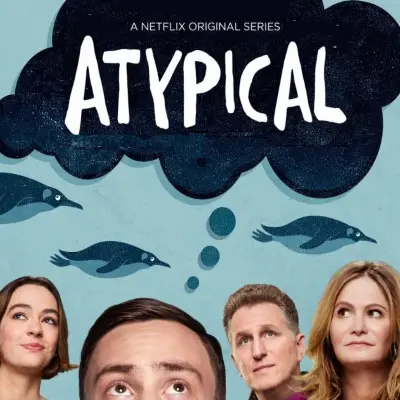Atypical failed to live up to its title: "The greatest part of its legacy is how quickly it became obsolete"
-

"Atypical may have begun its run among contemporaries, but when its fourth and final season was released last Friday, it was already a relic, eclipsed by far more interesting and actually autistic-influenced examples of representation," says Sarah Kurchak of the Netflix teen autism series. "In its initial eight-episode season, Atypical was indistinguishable from its autistic TV cohort. It was yet another story about a cisgender, heterosexual, white autistic man seemingly made with a largely non-autistic audience in mind. In terms of inclusion, it very meekly nudged the status quo by hiring one autistic person for the supporting cast and one for the social media team, but that was the extent of autistic inclusion in the show’s autistic story. No one with any meaningful input into how the autistic main character was portrayed or how the greater story involving him was told was like him. (According to Atypical’s official Twitter account, autistic actors did audition for the role, but it ultimately went to the non-autistic Keir Gilchrist because he was 'best for the role.') Outside of the neurology of its lead, Atypical failed to live up to its title. It was standard white middle class family fare with an increasingly standard depiction of autism at its center. Sam Gardner (Gilchrist) is an autistic 18-year-old with a special interest in penguins and a developing curiosity about dating. He visits a therapist where he perseverates on penguins in ways that serve as loose metaphors for the episode’s themes and where he occasionally touches on issues related to autism. (He also develops an inappropriate attachment to said therapist and breaks into her home, but more on that later.)...I wasn’t surprised by how poorly Atypical fared as both representation and entertainment, but I was still disappointed. At best, Sam was a wasted opportunity. He often appeared to me as more of a collection of stereotypes and repetitive physical movements than a person. Perhaps he would look like an autistic person from an outside perspective. But as an autistic person, I saw none of the complexity and internal life that I know exists in myself and my fellow autistic people and am desperate to see more of onscreen."
TOPICS: Atypical, Netflix, Autism
